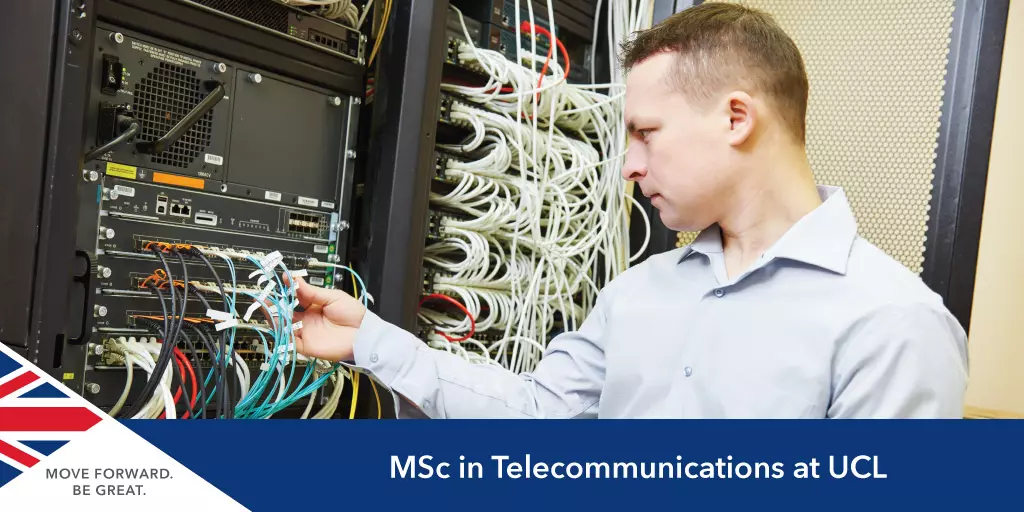As the world of telecommunications rapidly evolves, a degree in telecommunications will help you secure your career in one of the fastest-growing areas of science and technology.
The Telecommunication MSc at UCL will help you become acquainted with modern aspects of telecommunications systems, addressing the increasing industry demand for skilled graduates. You will understand the core principles of electrical engineering, electronics and telecommunications and develop the skills needed to make informed decisions about a range of issues and topics within the sector.
Students will develop a deep understanding of network architectures and other key technologies that make up the telecommunications network. Specific modules covered include communication technologies, telecommunications systems, network design and planning, data network and architectures, along with the business aspects of telecommunications. Selected scholarship and funding support is also available.
Students from electronic engineering, computer science, or any relevant discipline background are eligible to study telecommunication at UCL.
- International fees: £32,100
- Course length: 1-year
- UCL Entry requirements: CGPA of 7.75/10, 6.25/8.0, 5.75/7.0, 4.25/6.0, 3.3/4.0
- UCL acceptance rate: 15%
Learn more below about studying MSc Telecommunications at UCL and arrange a free consultation with SI-UK London today to begin your UK university application.

Three Reasons to Study MSc in Telecommunications at UCL
1. Modules that matter
The MSc in Telecommunications programme is a postgraduate course that is delivered through a combination of lectures, workshop sessions, tutorials, seminars, and project work. The course is accredited by the Institution of Engineering and Technology (IET) and students are required to complete five compulsory modules with three additional technical modules.
The compulsory module begins with a research project which culminates in a dissertation of approximately 12,000 words. Other subjects cover Telecommunications Business Environment which deals with the strategic management issues that are related to operating a telecommunication business.
Optional technical modules consist of optical transmission and networks that provide students with an advanced understanding of the entire physical layers involved in the optical transmission system. At the end of the module, students will have a thorough understanding of the principle of optically amplified optical transmission systems, understand optical system performance, and principles of electronic processing.
2. Graduate employability
Students at University College London benefit from bespoke careers consultant-led workshops for all graduates, masters and researchers. Graduates of UCL have a median starting salary of £30,000.
Between 2020-2021, UCL hosted 240 employer-led events including networking events, and skill development workshops. These career events are designed to to support students in finding work placement.
Upon completion of the programme, students can pursue a career as a telecommunications or network engineers, networking technologies system architects, or consultant.
3. UCL has an international reputation for quality
Being a member of the Russell Group, University College London is one of the top 10 global universities for its excellent academic standards. Owing to this excellence, as well as student satisfaction, and graduate employability, UCL is considered one of the best universities in the country.
Study MSc in Telecommunications at UCL
If you want to learn more about studying MSc in Telecommunications at UCL or want to begin your application for the upcoming intake, book a free consultation with SI-UK London today.



 My consultant was very helpful and motivating. She helped me every step of the way, even when the deadline was so close. I feel I could not have done it without her. I'd highly recommend this service to any and all of my many friends interested.
My consultant was very helpful and motivating. She helped me every step of the way, even when the deadline was so close. I feel I could not have done it without her. I'd highly recommend this service to any and all of my many friends interested. 









